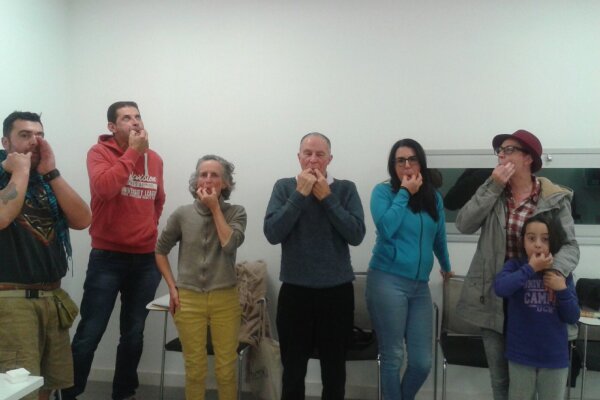2020-07-17

Silbo Gomero is a Spanish whistled language that is mainly used on the island of Silbo Gomero. It has rarely been investigated neuroscientifically, but a research team from the biopsychology now analyzed lateralization in this unusual language. The research team used a vocal and a whistled dichotic listening task in a sample of 75 healthy Spanish speakers. Both individuals that were able to whistle and to understand Silbo Gomero and a non-whistling control group showed a clear right-ear advantage for vocal dichotic listening. For whistled dichotic listening, the control group did not show any hemispheric asymmetries. In contrast, the whistlers’ group showed a right-ear advantage for whistled stimuli. This right-ear advantage was, however, smaller compared to the right-ear advantage found for vocal dichotic listening. In line with a previous study on language lateralization of whistled Turkish, these findings suggest that whistled language processing is associated with a decrease in left and a relative increase in right hemispheric processing. This shows that bihemispheric processing of whistled language stimuli occurs independent of language.

Silbo Gomero is a Spanish whistled language that is mainly used on the island of Silbo Gomero. It has rarely been investigated neuroscientifically, but a research team from the biopsychology now analyzed lateralization in this unusual language. The research team used a vocal and a whistled dichotic listening task in a sample of 75 healthy Spanish speakers. Both individuals that were able to whistle and to understand Silbo Gomero and a non-whistling control group showed a clear right-ear advantage for vocal dichotic listening. For whistled dichotic listening, the control group did not show any hemispheric asymmetries. In contrast, the whistlers’ group showed a right-ear advantage for whistled stimuli. This right-ear advantage was, however, smaller compared to the right-ear advantage found for vocal dichotic listening. In line with a previous study on language lateralization of whistled Turkish, these findings suggest that whistled language processing is associated with a decrease in left and a relative increase in right hemispheric processing. This shows that bihemispheric processing of whistled language stimuli occurs independent of language.